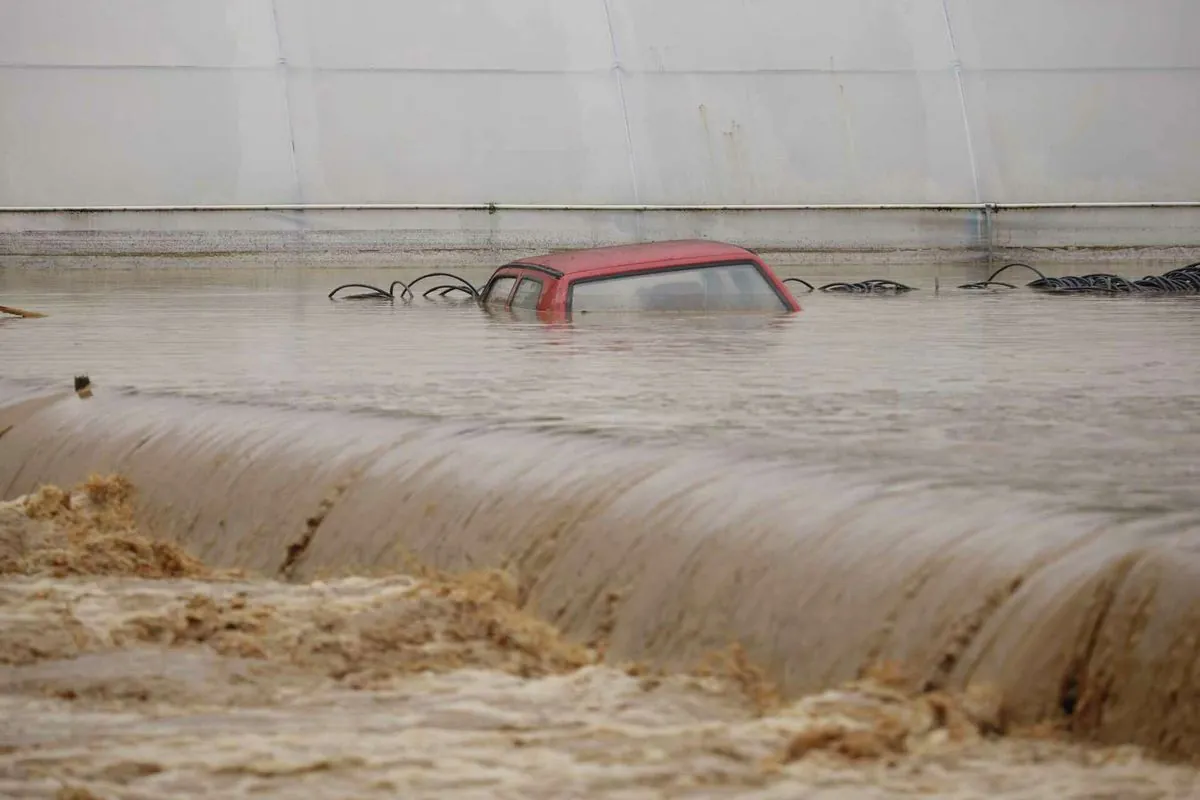A powerful rainstorm has unleashed havoc across Bosnia and Herzegovina, causing extensive flooding in the central and southern regions. The overnight deluge on Friday, October 3, 2024, has resulted in widespread disruptions, isolating towns and leaving residents without essential services.
In the affected areas, rescue services report several individuals as missing and have issued urgent calls for volunteers and military assistance. The towns of Jablanica and Kiseljak have been particularly hard-hit, experiencing power outages and loss of mobile communication.
Jablanica, a town known for its large hydroelectric dam and artificial lake, has been rendered completely inaccessible. Local fire services stated, "Both roads and rail lines are blocked. There's currently no way in or out of Jablanica." While landline phones remain operational, mobile networks have been disrupted.
Authorities are strongly advising residents to avoid venturing onto flooded streets, prioritizing safety in these treacherous conditions. This caution is particularly crucial given that Bosnia and Herzegovina's terrain is predominantly mountainous, covering 66% of the country, which increases the risk of landslides during heavy rainfall.
The situation underscores the vulnerability of the region to natural disasters. Bosnia and Herzegovina experiences an average of 250 days of rainfall annually, and its complex topography, including the Dinaric Alps, makes it susceptible to flooding and landslides.
Neighboring Croatia is also grappling with similar weather-related challenges. The capital, Zagreb, situated along the Sava River, is bracing for potential flooding as water levels rise. Along the Adriatic coast, which stretches over 1,700 km, heavy winds have disrupted maritime traffic, while flash floods threaten several towns and villages inland.
This severe weather event highlights the shared environmental challenges faced by both Bosnia and Herzegovina and Croatia, two countries that emerged from the former Yugoslavia and now aspire to join the European Union. Their geographical position in the Balkan Peninsula, with its diverse climate influenced by both continental and Mediterranean factors, contributes to their susceptibility to such extreme weather events.
As rescue efforts continue, the incident serves as a stark reminder of the importance of disaster preparedness and the need for robust infrastructure in regions prone to natural calamities. It also underscores the critical role of cross-border cooperation in addressing shared environmental threats in the Balkan region.
